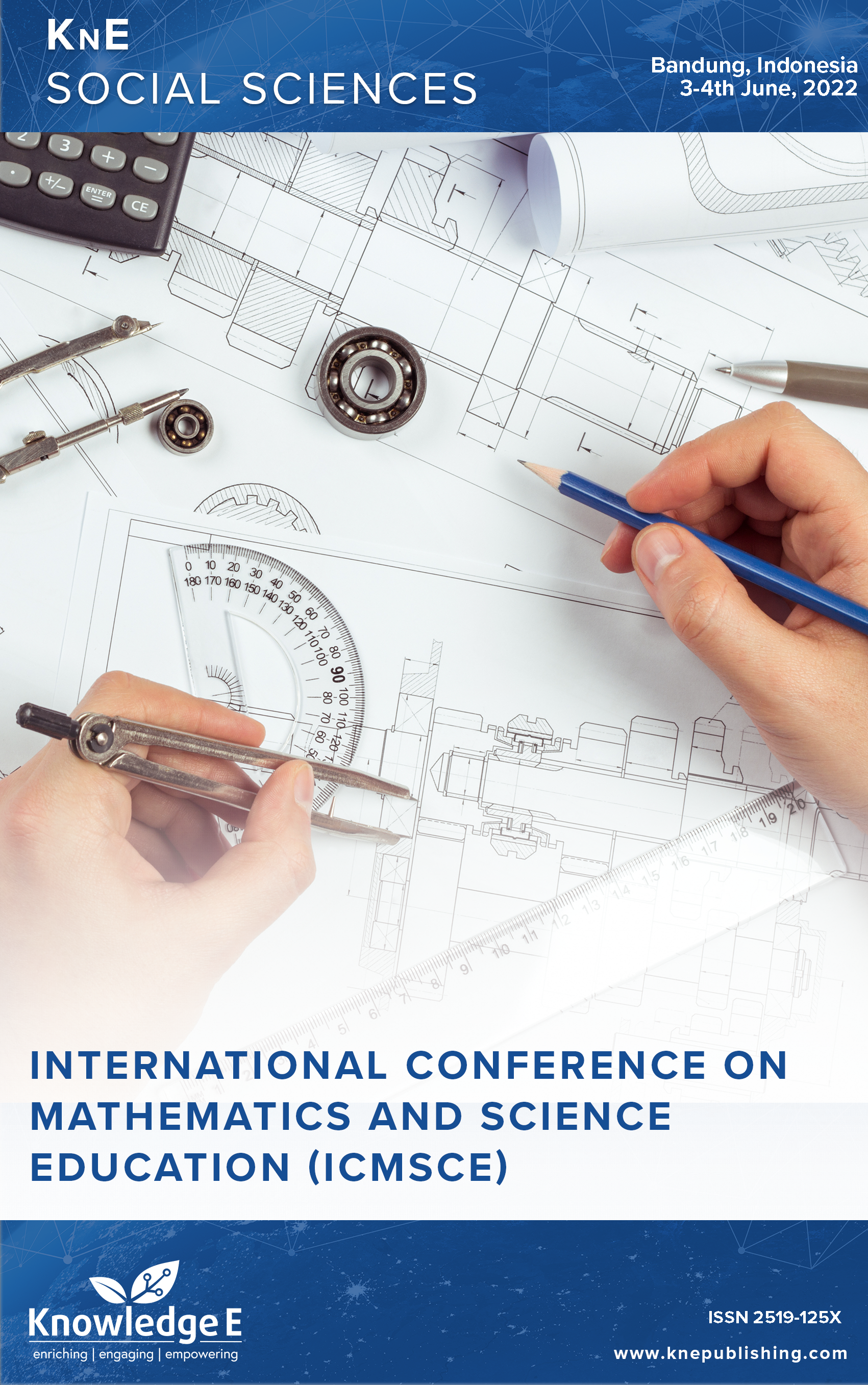Analysis of Students' Perception of the Implementation of E-Learning USK: An Evaluation Using the CIPP Model
DOI:
https://doi.org/10.18502/kss.v9i13.15994Abstract
Universitas Syiah Kuala (USK) has developed E-Learning USK, a Learning Management System to face the era of The Fourth Industrial Revolution. E-Learning USK was implemented thoroughly when the COVID-19 pandemic was enforced. However, information regarding the effectiveness of using this LMS is not yet available. Therefore, through this research, a survey was conducted to obtain an overview of the effectiveness of the implementation of E-Learning USK from the student’s point of view. The research sample consisted of 504 students from various faculties at USK. The research instrument used was a Likert scale, which was developed based on the CIPP model indicators and distributed online using a Google Form. Data analysis was done descriptively. The results showed that students considered the application of E-Learning USK to be in the “good” category. However, they assume that there are still obstacles to the campus infrastructure. This study provides recommendations that will become input for strategies and policies for implementing LMS in Indonesia, especially at Universitas Syiah Kuala.
Keywords: Students’ Perception, E-Learning USK, CIPP Model
References
Nafea RM, Toplu EK. Future of education in industry 4.0. In: Tunç AÖ, Aslan P, editors. Business Management and Communication Perspectives in Industry 40. Istanbul, Turkey: IGI Global; 2020. pp. 267–87. DOI: https://doi.org/10.4018/978-1-5225-9416-1.ch015
Widya I, Pratomo P, Wahanisa R. Pemanfaatan teknologi Learning Management System (LMS) di UNNES masa Pandemi Covid-19. Seminar Nasional Hukum Universitas Negeri Semarang. Semarang; 2021. p. 547–560.
Amir LR, Tanti I, Maharani DA, Wimardhani YS, Julia V, Sulijaya B, et al. Student perspective of classroom and distance learning during COVID-19 pandemic in the undergraduate dental study program Universitas Indonesia. BMC Med Educ. 2020 Oct;20(1):392. DOI: https://doi.org/10.1186/s12909-020-02312-0
Young B. Top 3 advantages of moodle.
Al-Ajlan A, Zedan H. Why moodle. 2008 12th IEEE International Workshop on Future Trends of Distributed Computing Systems. Kunming, China; 2008. pp. 58- 64. https://doi.org/10.1109/FTDCS.2008.22. DOI: https://doi.org/10.1109/FTDCS.2008.22
Niederhauser DS, Lindstrom DL. Instructional technology integration models and frameworks : Diffusion, competencies, attitudes, and dispositions. In: Voogt J, Knezek G, Christensen R, Lai KW, editors. Handbook on Information Technology in Primary and Secondary Education. Cham: Springer; 2018. pp. 1–21. DOI: https://doi.org/10.1007/978-3-319-71054-9_23
Stufflebeam DL. The CIPP Model for evaluation. In: Stufflebeam DL, Madaus GF, Kellaghan T, editors. Evaluation Models. Dordrecht: Kluwer Academic Publishers; 2000. pp. 279–317. DOI: https://doi.org/10.1007/0-306-47559-6_16
Hakan K, Seval F. CIPP evaluation model scale: Development, reliability and validity. Procedia Soc Behav Sci. 2011;15:592–9. DOI: https://doi.org/10.1016/j.sbspro.2011.03.146
Mirzazadeh A, Gandomkar R, Hejri SM, Hassanzadeh G, Koochak HE, Golestani A, et al. Undergraduate medical education programme renewal: a longitudinal context, input, process and product evaluation study. Perspect Med Educ. 2016 Feb;5(1):15– 23. DOI: https://doi.org/10.1007/S40037-015-0243-3
Sudarsono S. Evaluasi inovasi penyelenggaraan ujian dan penilaian online pada Balai Diklat Keagamaan Denpasar Tahun 2018. Jurnal Widyadewata. 2019;2(1):1–10. DOI: https://doi.org/10.47655/widyadewata.v2i1.29
Tokmak HS, Baturay HM, Fadde P. Applying the context, input, process, product evaluation model for evaluation, research, and redesign of an online master’s program. Int Rev Res Open Distance Learn. 2013;14(3):273–93. DOI: https://doi.org/10.19173/irrodl.v14i3.1485
Hutahaean B. Pengembangan model evaluasi kurikulum multidimensi untuk Kurikulum Berbasis Kompetensi. Jurnal Cakrawala Pendidikan. 2014;2(2):170–85. DOI: https://doi.org/10.21831/cp.v2i2.2145
Kool B, Wise MR, Peiris-John R, Sadler L, Mahony F, Wells S. Is the delivery of a quality improvement education programme in obstetrics and gynaecology for final year medical students feasible and still effective in a shortened time frame? BMC Med Educ. 2017 May;17(1):91. DOI: https://doi.org/10.1186/s12909-017-0927-y
Irawan S, Prasetyo D. The evaluation of online school examination implementation using CIPP model. Jurnal Penelitian dan Evaluasi Pendidikan. 2020;24(2):136–145. https://doi.org/10.21831/pep.v24i2.33032. DOI: https://doi.org/10.21831/pep.v24i2.33032
Putra RL, Maulana A, Iriani T. Evaluasi program pelaksanaan ujian online dengan menggunakan Learning Management System Moodle Berbasis Android di SMK Negeri 1 Jakarta. Jurnal PenSil. 2019;8(1):47–54. DOI: https://doi.org/10.21009/jpensil.v8i1.8483
Mustofa Z. Evaluasi penyelenggaraan Ujian Semester Berbasis Komputer (USBK) menggunakan Model CIPP. Jurnal Teknodik. 2020;24(1):15–26. DOI: https://doi.org/10.32550/teknodik.v0i2.519
Prayogo D. Evaluasi distance learning mata kuliah ilmu bahan saat pandemi Covid-19 menggunakan Model CIPP. Jurnal Pendidikan Teknik Mesin. 2020;7(2):91–8.
Aziz S, Mahmood M, Rehman Z, Report A. Implementation of CIPP Model for quality evaluation at school level: A case study. Journal of Education and Educational Development. 2018;5(1):189–206. DOI: https://doi.org/10.22555/joeed.v5i1.1553
Verdaguer J. What’s coming in Moodle 3.9. 2020.
Cahyadi A, Hendryadi S. Widyastuti, Suryani. “COVID-19, emergency remote teaching evaluation: the case of Indonesia.,” Education and Information Technologies. 2021. DOI: https://doi.org/10.1007/s10639-021-10680-3

